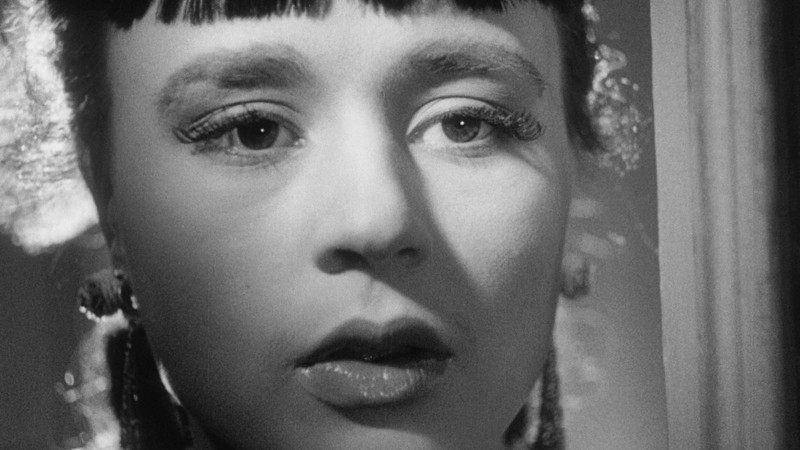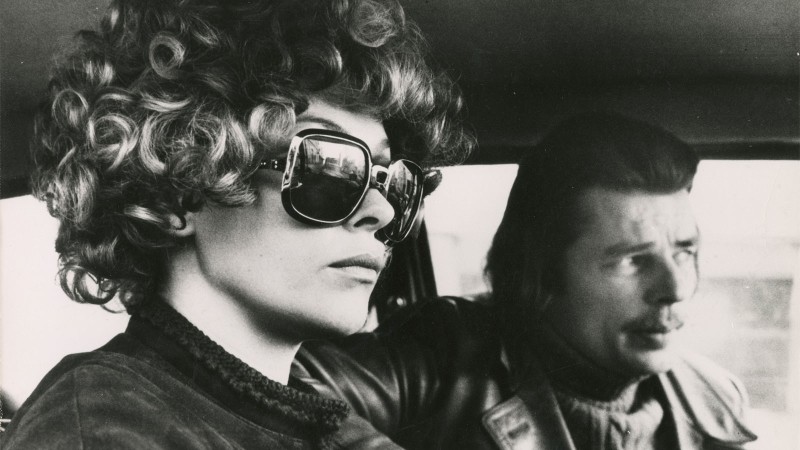“Cinema Can Possess You More”

It’s been a week of rolling festival lineup announcements capped off by more news from New York and Toronto. The NYFF’s Spotlight Gala presentation will be the U.S. premiere of Luca Guadagnino’s Queer, an adaptation of William S. Burroughs’s novel. For artistic director Dennis Lim, Queer is Guadagnino’s “most fearless, inventive, and surprising film, one that brings its subcultural world to brilliant life and creates the role of a lifetime for a tremendous Daniel Craig.”
- Novelist Steve Erickson (Zeroville) has recently written for us about “one of cinema’s towering westerns,” Sam Peckinpah’s Pat Garrett and Billy the Kid (1973). At the Reveal, Keith Phipps focuses on Bob Dylan’s performance and score and suggests that it may be easier to appreciate the film, “and Dylan’s contributions to it, now. Time has made clearer what the movie is: a collection of rough edges and misfit pieces made by an all-time great director in the act of destroying his body and career that comes close to cohering into a masterpiece anyway. Scenes that don’t work or whose role in the film seem unclear butt up against some of the greatest of Peckinpah’s career, particularly a haunting finale that somehow finds a way to depict the death of the American frontier.”
- In Los Angeles, the American Cinematheque’s Shinji Somai retrospective is on through August 17, and the new restoration of Moving (1993) is currently in or heading to theaters across North America. Tomoko Tabata was twelve when she played the daughter of a couple whose marriage is dissolving, and “her expressive range in the film—from unnerving fits of rage to innocent daydreaming, from laughing and singing to moments of utter desolation—is astonishing,” writes Daniel Eagan, introducing his interview with Tabata for Film Comment. She has since gone on to work with Hirokazu Kore-eda and Kiyoshi Kurosawa, and says: “Every time I’m on a set or on a stage, every time I act, I want to meet Somai’s standard, and not compromise. It’s like I’m talking to him, asking him, ‘Is this okay? Is that okay?’ What he taught me in Moving has stayed inside me.”
- Last week, Letterboxd posted Mia Lee Vicino’s conversation with Michael Mann about twenty-five films that have inspired him over the years (and naturally, they also discuss the Michael Mann Archives). The video, which runs nearly an hour, is peppered with well-chosen clips, and of course, Mann’s insightful commentary cuts straight to the core of what makes these films great. This week, Jim Hemphill talks with Mann for IndieWire’s Filmmaker Toolkit podcast about Collateral (2004), starring Tom Cruise as a professional assassin, Jamie Foxx as a cab driver, and Los Angeles as its nighttime self. Mann notes that he insisted that Cruise train with an expert marksman because “we, as brilliant animals who perceive more than we are even conscious of perceiving, react to the truth of the presentation. It feels authentic because he really can do that.”
- Another delightful interview is Nathan Silver’s with Carol Kane for Metrograph Journal. Silver directs Kane and Jason Schwartzman in Between the Temples, a deeply sad and boundlessly funny comedy about an unlikely romance. Kane is full to bursting with stories about Mike Nichols (Carnal Knowledge), Joan Micklin Silver (Hester Street), Andy Kaufman (Taxi), and Elaine May and John Cassavetes, who worked with her on something that never became a play or a movie. “We rehearsed and rehearsed and rehearsed, and it was a magnificent experience,” she says. “Elaine and I played failed hookers who were roommates. We were too picky about our clients so we were always broke. And John was a john . . . And it went on and on. It was so brilliant, and then, I don’t know what happened. Just: it was brilliant, and it went away.”
- From September 16 through 29, Bozar in Brussels will present Close-up: Apichatpong Weerasethakul, a showcase of work that includes the director’s virtual reality project, A Conversation with the Sun. “Honestly, I thought VR would take cinema to another place, that it would propel its future,” he tells Bozar artistic director Christophe Slagmuylder. “But I think I was wrong.” VR “did make me start thinking more about cinema. About how limited and intimate it is as a medium. Framing, movement, sound, it’s all very subjective, very controlled. When you make films, you’re forcing the audience to watch. You present a frame through which people have to look. While people consider VR to be immersive, cinema can possess you more.”



